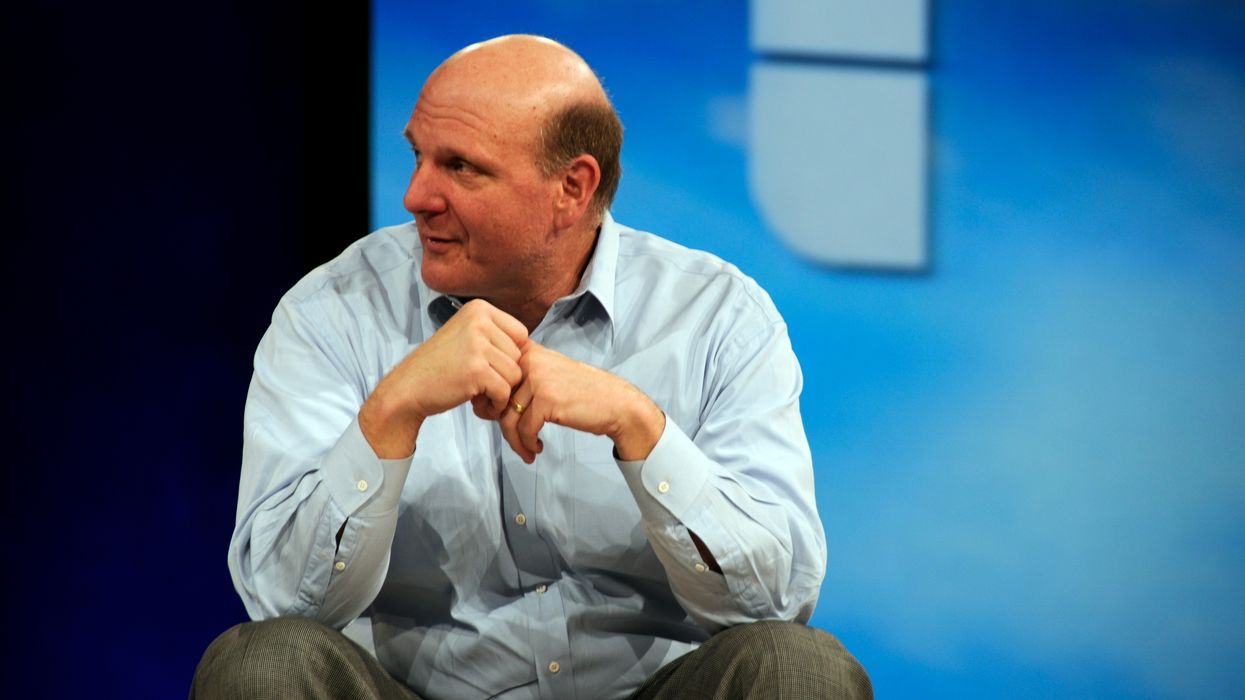I was particularly struck by his observation that Mildred (Babe) Didrikson Zaharias became one of the greatest athletes of the century (and in so many sports!) “simply because she would not or could not compete with women at their own best game—man-snatching. It was an escape, a compensation. She would beat them at everything else they tried to do.”
The backstory to that observation holds a key to the more general misogyny in sports then, if not in society in general. During a friendly golf game, Gallico and Zaharias were talked into a footrace by the famous sportswriter Grantland Rice. The Babe ran Paul into the ground, and he rarely wrote about her again without mentioning her muscles, Adam’s apple, and loud voice. After all, how could a real woman beat a real man?
I came to wonder if the values of sports were faintly in the best interests of this country, much less any individual—and, in the end, came to believe that they’re not.
By the time I read Farewell to Sport at age 15, Gallico had produced several sappy bestsellers, including The Snow Goose. At the time, I was a mere four years away from answering an ad for a copyboy job at the New York Times sports department. My first year at the paper, 1957, would prove a turning point for New York sports fans in their realization that the industry by no means returned their devotion. After all, the elopement west that year of the New York Giants and Brooklyn Dodgers (to become the San Francisco Giants and the Los Angeles Dodgers) was considered a total betrayal. Hadn’t those teams been part of our extended families? Wasn’t loyalty to them promoted almost as a Judeo-Christian duty?
On the other hand, expansion also made the big leagues national and kicked off the boom that lifted sports into the highest levels of entertainment (where it now resides).
And in that context, consider what follows an old sportswriter’s meditation on sports at the end of a tumultuous political year—with its tribalism, violence, false narratives, and dangerous entertainment—that seems to have made what was once my prime area of study superfluous. After all, who really needs a Super Bowl (or a sportswriter) after Trump’s mob of fans attacked the Capitol on January 6, 2021, and were rewarded with a ticker-tape parade of pardons by the reelected mobster-in-chief on January 20, 2025?
Sometimes, I think I’d like to run this past Gallico. Was his bigotry just the expression of a sportswriter of his times, or was he an early Trumpist?
In 1938, sports were generally considered a positive force for the national psyche, a way for children to learn courage and self-control, old people to find blissful nostalgia, and families to discover congenial areas of communication. In fact, it was there that we would then all find a unifying language. The melting pot may have been a myth, but we would all come together in the ballpark.
Welcome to SportsWorld
I came to call that web of aspirations and attitudes SportsWorld (the title of one of my books) and thought of it as an imposed infrastructure meant to help contain our natural energies; divert our political passions; and socialize us for work, war, or depression. In my years as a sportswriter for the Times, I came to wonder if the values of sports were faintly in the best interests of this country, much less any individual—and, in the end, came to believe that they’re not.
Winning is everything? Think where that’s taken us.
In a Trumpian world where white Christian males have renewed their manifest destiny of ruling over everything as they drive the ball toward that goal line, the character of everything else has indeed changed, and sports, at least as we once imagined it, is gone.
Growing up as a casual spectator rather than a participant—my Dad and I went to the library together, but never played catch—my take on the games I came to cover as a reporter would prove to be sociological rather than fan-based. I never bought into games as gauges of courage, manhood, or success.
In fact, there were too many questions I found I couldn’t take for granted. My favorite example: the first time I covered the annual major college national basketball tournament—dubbed March Madness, I thought, to pardon its excesses in advance—I noticed how many top teams fielded three or four Black players on their starting fives from student bodies that were routinely 90% white.
Other sportswriters shrugged when I mentioned it, not because they necessarily thought the point irrelevant but because it had become too routine to mention without annoying editors (who believed that our readers didn’t care). And I think it was true that most didn’t care because they hadn’t been conditioned to see sports as anything but a dreamworld. If you covered horse-racing, would you note it every time the owners of those horses were predominately upper-class whites, the trainers middle-class whites, and the stable hands mostly men of color (and a few white women)? It is what it is, as we were told on ESPN.
Covering the Spread
And then there was sports gambling, illegal at the time except in Las Vegas, yet still the pumping heart of the fans’ game. The first time I covered a pro basketball game at New York’s Madison Square Garden in the early 1960s, I was confused by some Knicks fans (you could tell by the team jerseys they so often wore) cheering when the other team scored. I finally asked an older sportswriter what to make of that and he gave me a funny look before saying, “the spread,” and patiently explaining that more sophisticated fans often bet on the disparity of the final score rather than simply who won or lost.
Betting was then so verboten as an obvious corrupter of the purity of games that several baseball and football stars were suspended for seemingly harmless gambling or simply associating with casinos. And that came to be considered hypocritical, since everybody gambled. It should be legal, fans insisted. Now, of course, almost every sports entity has an official connection with an online gambling site and there have already been betting scandals in basketball and baseball.
I lasted 14 years in my first stint in the Times sports department. After I left, I found that I missed the people and the paper, but not sports itself. I rarely watched games. Most of my next 20 years were spent writing books and appearing on television which, while less satisfying than newspaper writing, was considerably easier. And when I did do a sports piece for TV, my subjects tended to treat me with far more respect. The jocks wanted to be on TV, too.
The bestselling sports narratives tended to flare and disappear. Trump, however, proved to be the comeback player of the century.
In fact, one shrewd old football coach, Eddie Robinson of historically Black Grambling State University, made a deal with me—full access with camera and crew to his locker room in return for his players having a Q&A session with us on how to break into TV. These days, former players and coaches dominate sportscasting (as they undoubtedly should). Their insider insights go further in enhancing the entertainment of the event than anything most everyday sportscasters might do.
During the 20 years between my gigs at the Times—1971 to 1991—it seemed as if performance-enhancing drugs, traumatic brain injuries, and the commercialization of amateur sports made far greater inroads than the most obvious positive trend, the growth of women’s sports, particularly pro basketball’s WNBA. However, in 2024, when the women’s league finally produced a transcendent superstar, Caitlin Clark, jealousy with overtones of racism marred the story.
Perhaps the saddest trend of those years, though, was the increasing elitism of even school sports, as recess play for every kid came to be displaced by ever more resources going into the creation of potential stars. The ever-fatter kids who most needed supervised athletics all too often remained indoors, snacking over video games, while their athletically gifted siblings went off on travel teams. The best of them would also face sweeping changes caused by steroid use, brain trauma, and new rules passed by Congress in 2021 that enabled colleges to pay their athletes for the use of their names, images, and likenesses. By the end of high school, the best quarterbacks and point guards were already on track to become millionaires through shadowy confederations of agents, college athletic departments, and booster clubs without even having to turn pro.
A relatively new wrinkle, the tranfer portal, now enables college athletes to switch schools, creating a complicated and highly commercialized college sports environment, particularly in the revenue sports of football and basketball.
Any Kind of Bud
The SportsWorld that awaited my return to Times daily sports writing in 1991 was already a distinctly more market-driven, sophisticated place. It was far harder by then to access athletes. No more congenial drinks in a hotel bar after a game. Interviews were now generally set up by press agents. In those years, however, one of my best times was a season I spent covering the National Association for Stock Car Auto Racing, better known as NASCAR, traveling the South, and learning about stock car carburetors from some of the most accommodating stars I had ever met in sports. That sport was then trying to gentrify itself for a new northern urban audience. At the first NASCAR cocktail party I attended, I bellied up to the bar, asked for a glass of white wine, and got a wink and the reply, “Any kind of Bud you’d like.” Nine months later, toward the season’s end, the reply was, “Chardonnay, Pinot Grigio, or Sauvignon Blanc?” And that tells you so much about where car racing, like so many other sports, was heading.
Perhaps the most emblematic moment of the mercantile new times for sports was basketball star and sneaker salesman Michael Jordan’s famous line, “Republicans buy shoes, too,” to explain his refusal to back a Democratic Senate candidate against a notorious racist. That line would be endlessly decoded as the shameful selfishness, understandable neutrality, or tragic suppression of the era’s premier athlete and salesman. Each of those interpretations held some credibility for me, since Jordan labored long and hard to overcome early failures and fulfill the big three promises of corporate sports to their followers—thrilling entertainment, a modern model of behavior (and consumption), and membership in a fan base that offered a kind of cultish sense of belonging. And yet, until recently, athletes, like factory workers, never owned the means of production.
And none of them ever achieved Donald Trump’s level of idolatry in his early ascendency. The bestselling sports narratives tended to flare and disappear. Trump, however, proved to be the comeback player of the century.
Mark and Sammy
I remember one night in 1998 being in a Bronx sports bar with several Latino friends watching the Chicago Cubs’ Sammy Sosa and the St. Louis Cardinals’ Mark McGwire hammering out their home-run competition. It was a thrill to see that high-stakes, warmhearted face-off—Sosa, the dark-skinned Dominican poor boy versus McGwire, the big, pale California dentist’s son vying for the late Roger Maris’ 1960 record of 60 homers in a season. What fun! How American! I didn’t know Sosa or McGwire, but I had known and liked Maris. (A New York boy, from my earliest days I had been a Yankee fan.) For me, it was the rare connection of a fan.
What I suspected but didn’t know then was that both Sosa and McGwire were probably juiced on steroids at the time, part of a generation of athletes driven by the need to produce bigger numbers. McGwire eventually won that home-run race, hitting 70 to Sosa’s 66. I could later imagine the surly slugger Barry Bonds, a far better player than either Sosa or McGwire, seething at the attention they were getting and wondering if he needed a chemical boost, too.
What better metaphor could there be for that than football’s dominance as the new national pastime, its violence mirrored in the language and actions of the second Trump administration?
Five years later, Bonds, by then considered the poster boy for steroid use in baseball, hit 73 homers and still holds the record. With both home-run and base-stealing records, he was one of the most complete baseball players ever (with or without chemical help), but he’s better known now for the controversy over his proposed election to the Baseball Hall of Fame. The case against his induction has probably been fueled as much by his unpleasant and uncooperative interaction with teammates, fans, and sports journalists as by his steroid use. If the sainthood of election and the emoluments and celebrity that go with it are to have meaning beyond just technical superiority, how can Bonds, McGwire, and Sosa, much less Pete Rose, who actually bet on his own games, be included?
Or maybe in 2025, a case can be made for Rose as a good fit. As I wrote recently, he “was another of the thugs who mugged us on the dark road to dishonor and—yes, in Donald Trump’s case—even possibly tyranny. So stopping his beatification is just the sort of thing we need to do if we hope to put his version of manhood into the Hall of Shame and transform ourselves into the patriotic beast that will strike Donald Trump out.”
The Heroes Are Gone
Muhammad Ali, the biggest story of my sports writing career, died in June 2016. A few months later, Colin Kaepernick, the San Francisco 49ers’ quarterback, sat and then knelt during the national anthem before a preseason game. It was a protest against racism, more particularly against the police shootings of unarmed Black men. My initial reactions were similar to those I had watching John Carlos and Tommie Smith raise black-gloved fists from the Olympic podium in Mexico City. First, I thought that this would be an extension of Ali’s effect and then I wondered: Is this all there is?
It was, of course, even more complicated than that. Just as Ali, Carlos, and Smith paid a great personal price for their principles and courage, Kaepernick was blackballed from the National Football League. The talented Super Bowl quarterback never played after the 2016 season and most sportswriters made little fuss about it, while colluding in the effort to turn Ali into a teddy bear of history, another beatified sports hero.
But this time, the stakes were higher. Democracy was also up for grabs, and the white Christian males who ruled sports in 1957 were now ruling the country as well. What better metaphor could there be for that than football’s dominance as the new national pastime, its violence mirrored in the language and actions of the second Trump administration? In any sane country, flag football would have replaced the concussion game by now. Lots of luck on that, I’m afraid. Continuing to batter the brains of young men is as morally bankrupt a way of life as continuing to send them off to senseless wars.
Sometimes, I think sports were terminally replaced by Trumpism on January 6, 2021, when his mob of supporters enacted their own Super Bowl at the Capitol. And that—excuse me for using the word—sporting event got its own ticker-tape parade a little over four years later when President Trump pardoned them all.
Eighty-seven years after my birth and the publication of his era-defining Farewell to Sport, I wonder what Paul Gallico would have thought about that.


